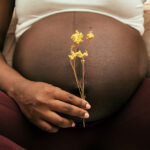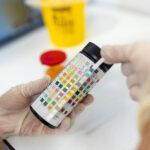Eat your way to fertility

A healthy diet is a must when you’re trying to […]
A healthy diet is a must when you’re trying to get pregnant. “Boosting our fertility is really about boosting our heath overall, so that our bodies—specifically, the uterus, follicles and eggs—are primed and ready for growing a healthy baby,” says Ebeth Johnson, the nutrition expert behind The Breastfeeding Chef. “Happily, the same foods that boost fertility also support our health.”
Whole foods
Free from additives and minimally processed, these options provide vitamin B, vitamin E and fiber. “Organic meats and produce lessen the amount of toxins that are introduced into the body,” notes Johnson. “A body with a lower toxic load is more likely to conceive a baby.” Add brown rice, whole- wheat pasta and quinoa to your shopping list.
Fruits and veggies
Rich sources of vitamin C, potassium and antioxidants, plant-based foods are
best when eaten in season. Dark green vegetables like spinach, Swiss chard and romaine lettuce are packed with nutrients that support follicle development and egg release.
Low-fat dairy
Yogurt, fat-free cheese and skim milk provide protein and calcium, which are neces- sary for maintaining bone health. Topping off Greek yogurt or cottage cheese with berries, fruit or nuts makes a sweet treat without any added sugar.
Lean meats and beans
Also good sources of protein and calcium, these foods offer the added benefit of iron. “Increasing iron levels encourages ovulation and can help women avoid anemia during pregnancy,” explains Johnson.
Fish
High in omega-3s, certain fish—like salmon and canned tuna—provide essential fatty acids. According to registered dietician Kimberly Gomer, “Research has shown that the DHA/omega-3s benefit the baby’s brain and nervous system development and reduce the risk of premature birth.” The caveat: Be sure to avoid fish with a high mercury content, such as swordfish and tilefish, as well as raw fish, like sashimi.
Liquids
When planning your pre-pregnancy diet, limit your caffeine intake to no more than 200 milligrams (about two 8-ounce cups of coffee) per day, and drink plenty of water to flush out toxins and transport necessary hormones throughout the body.
For those considering fertility drinks, experts advise saving the extra calories for natural foods. “Being overweight can influence fertility and generally liquid calories don’t provide much satiety,” says Gomer. “Skip the shakes and teas—eat the fruits and veggies.”
Image: iStock.com







